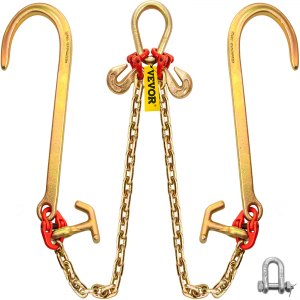Joel/ak
Veteran Member
- Joined
- Mar 22, 2022
- Messages
- 1,440
- Tractor
- Bobcat 324
Our 1705 gets 4 straps. Can't remember the load limit but the 3"ers.
Now the mini gets chains
Furthest we pull from the property, we're we keep everything is maybe 20 miles. All back roads
Now the mini gets chains
Furthest we pull from the property, we're we keep everything is maybe 20 miles. All back roads
